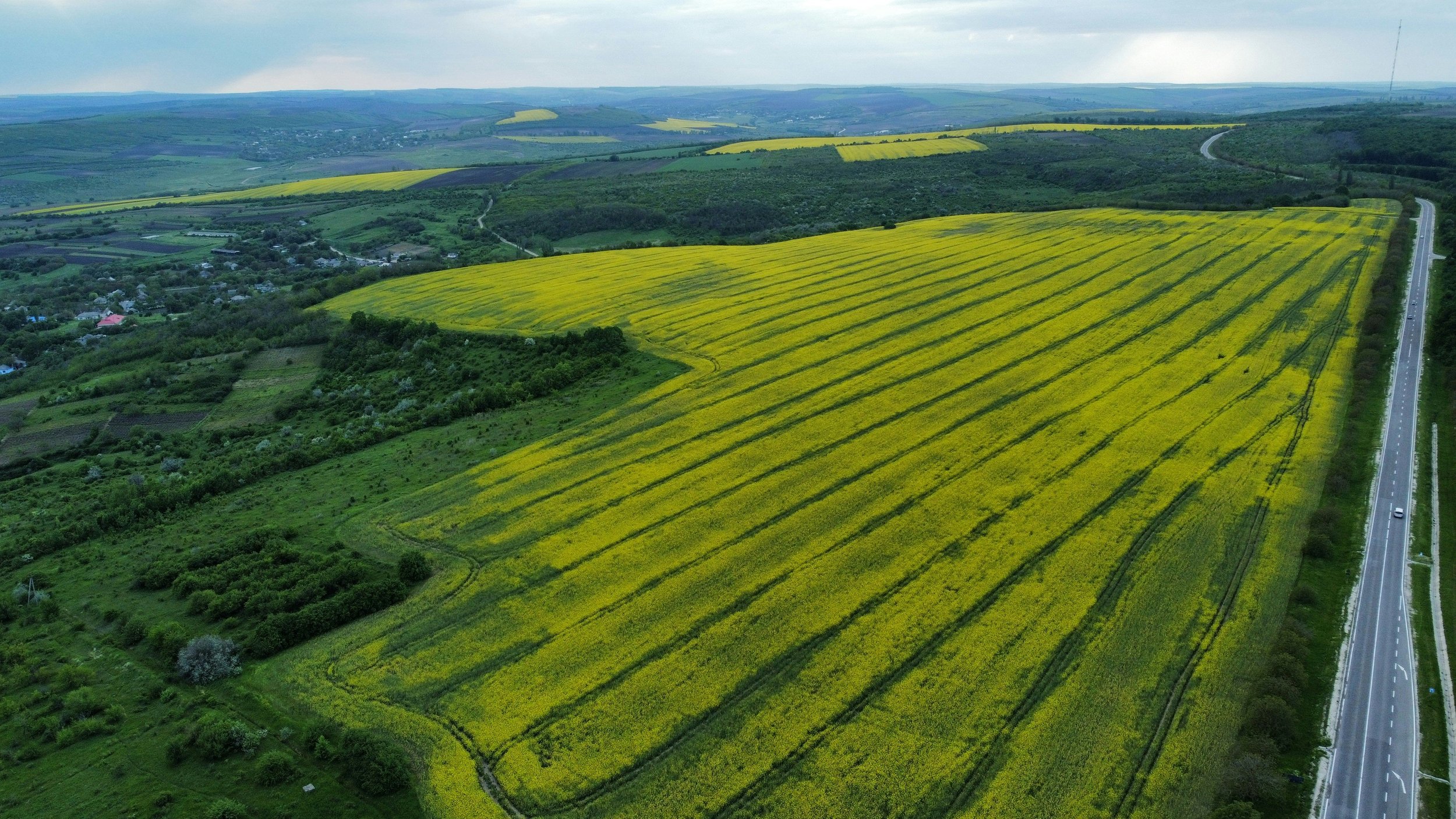Soil Health Federal Bill Tracker Update - September 2025
Getty Images for Unsplash+
Dear friends and colleagues,
Throughout the summer, Congress continued to introduce (and reintroduce) a variety of agricultural legislation with both direct and indirect implications for soil health. While tensions between political parties grew following the signing of President Trump’s One Big Beautiful Bill into law on July 4, 2025, bipartisan efforts to advance soil health-focused legislation remained ongoing.
Despite the brief pause during the month-long recess in August, the overall pace of introductions escalated once Congress returned to session in early September. While we track a wide array of agricultural-focused bills that could impact soil health, some themes and issue areas were more prevalent than others. Most often, we identified bills related to improving conservation practices and programs such as EQIP and CRP. Next, bills focusing on financial support for farmers (such as through loans and grants) were especially common. Other issue areas that appeared frequently in our tracking were related to research, nutrition, and food security – echoing themes in the country’s broader political discourse. See below for a recap of bills organized by issue area.
Without further ado, here’s your update on soil health legislation in the U.S. Congress from the Land Core Bill Tracker.
Warmly,
The Land Core Team
Sign up to get these updates directly in your inbox. Have a colleague interested in agriculture who might appreciate our non-partisan, educational legislative resources? Please share this alert with them.
Bill Tracker by the Numbers
This alert mostly tracks bills introduced from June to mid-September, with a select few coming from May. A total of 45 bills were introduced that relate to, or would impact, soil health during that period.
Importance to Soil Health: Core or Secondary
Core Bills: 19
Secondary Bills: 26
Party Support
Bipartisan: 28
Democrat Only: 7
Republican Only: 10
Chamber
House Only: 17
Senate Only: 3
Bicameral: 25
Core Soil Health Bills
Getty Images for Unsplash+
Below are 9 CORE bipartisan reintroduced bills that would have a direct impact on soil health.
Bipartisan Bills - REINTRODUCED
S.2288/H.R.4412 - Joint Chiefs Reauthorization Act of 2025
Senate Sponsor: Sen. Michael F. Bennet (D-CO) (1 Cosponsor)
House Sponsor: Rep. Joe Neguse (D-CO-2) (2 Cosponsors)
Summary: This bill would reauthorize the Joint Chiefs Landscape Restoration Partnership program and expand its scope to include wildfire recovery and the enhancement of soil, water, and related natural resources, prioritizing projects addressing wildfire risk and post-fire impacts.
S.2582/H.R.4865 - Advancing Research on Agricultural Soil Health Act of 2025
Senate Sponsor: Sen. Tina Smith (D-MN) (1 Cosponsor)
House Sponsor: Rep. Eric Sorensen (D-IL-17) (1 Cosponsor)
Summary: This bill would require the development of a standardized soil carbon measurement methodology, provide voluntary reporting guidance, and expand eligible research under USDA grant programs. It would establish a Soil Carbon Inventory and Analysis Network, and develop predictive tools for assessing management impacts on GHGs and soil carbon. The bill includes a total of $20 million in funds for the work.
S.2450/H.R.4764 - Biochar Research Network Act of 2025
Senate Sponsor: Sen. Chuck Grassley (R-IA) (1 Cosponsor)
House Sponsor: Rep. Mariannette Miller-Meeks (R-IA-1) (9 Cosponsors)
Summary: This bill would establish a national biochar research network of up to 20 research sites to study the effects of biochar across various soil types, climates, and agricultural systems. It would support cross-site experiments and regional assessments to evaluate biochar’s potential for carbon sequestration, soil health improvement, and climate resilience. Eligible participants would include USDA, DOE, and other federal research facilities. The bill would authorize $50 million annually.
H.R.4296 - Conservation and Regenerative Optimization Practices (CROP) for Farming Act
House Sponsor: Rep. Michael Lawler (R-NY-17) (6 Cosponsors)
Summary: This bill would expand the scope of EQIP conservation incentive contracts to include efforts that address agricultural GHGemissions and promote carbon storage. It specifies that resource concerns could include nitrous oxide and methane emissions, as well as carbon storage in plants or soil, and would allow such contracts to support activities aimed at reducing GHG emissions or increasing carbon storage.
S.2608/H.R.5111 - CRP Improvement and Flexibility Act of 2025
Senate Sponsor: Sen. John Thune (R-SD)
House Sponsor: Rep. Jim Costa (D-CA-21)
Summary: This bill seeks to improve the Conservation Reserve Program by expanding continuous enrollment for State Acres for Wildlife Enhancement, allowing limited emergency haying during the final two weeks of the primary nesting season under specific drought or disaster conditions, and prohibiting practices that would cause long-term habitat damage. It would also authorize cost-sharing for grazing infrastructure, provide support for mid-contract management activities other than haying and grazing, and increase the annual rental payment limit from $50,000 to $125,000.
Bipartisan Bills - NEWLY INTRODUCED
Below are 2 CORE bipartisan newly introduced bills that would have a direct impact on soil health.
H.R.4428 - Strong Farms, Strong Future Act
House Sponsor: Rep. Lauren Underwood (D-IL-14) (1 Cosponsor)
Summary: This bill would expand support under the Conservation Stewardship Program for producers implementing perennial production systems. It would authorize additional payments, adjust payment rates for inflation, and establish criteria emphasizing soil health, soil carbon, and GHG reduction, while creating bundles of practices tailored to specific land types and regions, and allowing for contract renewals based on continued conservation improvements.
S.2338 - Strengthening Local Food Security Act of 2025
Senate Sponsor: Sen. Jack Reed (D-RI) (1 Cosponsor)
Summary: This bill would establish the Strengthening Local Food Security Program, authorizing USDA to enter cooperative agreements with eligible state, territorial, and Tribal governments to purchase food from local and regional producers and distribute it to schools and hunger relief organizations. $200 million annually in funding would be allocated, with provisions for technical assistance, food safety support, and prioritization of underserved communities.
Single Party Support
Getty Images for Unsplash+
Below are an additional 5 core bills with single party support that would have a direct impact on soil health.
Republican
S.2395 - Mid-South Oilseed Double Cropping Study Act of 2025
Senate Sponsor: Sen. Tommy Tuberville (R-AL) (0 Cosponsors)
H.R.5196 - Protect Our Farmers and Families Act of 2025
House Sponsor: Rep. Anna Paulina Luna (R-FL-13) (0 Cosponsors)
Democrat
H.R.4133 - EQIP Improvement Act of 2025
House Sponsor: Rep. Jahana Hayes (D-CT-5) (4 Cosponsors)
H.R.4485 - Climate-Friendly Food Label Task Force Act
House Sponsor: Rep. Julia Brownley (D-CA-26) (0 Cosponsors)
H.R.4636 - Saving Our Interconnected Lives (SOIL) Act
House Sponsor: Rep. Julia Brownley (D-CA-26) (0 Cosponsors)
Secondary Bills
Below are 5 new bills, and 16 reintroduced bills, that would have an indirect impact on soil health.
New
H.R.4529 - Black Farmers and Socially Disadvantaged Farmers Increased Market Share Act - Democrat
H.R.4657 - Next Generation Farmer Act - Bipartisan
H.R.4782 - Local Farmers Feeding our Communities Act - Bipartisan
H.R.4513 - Resiliency for Ranching and Natural Conservation Health Act - Republican
H.R.5030 - Specialty Crop Domestic Market Promotion and Development Program Act of 2025
Reintroduced
H.R.4156 - Support for Ownership and Investment in Land Act - Republican
S.2015/H.R.3889 - National Prescribed Fire Act of 2025 - Bipartisan
S.2409/H.R.4700 - Processing Revival and Intrastate Meat Exemption (PRIME) Act - Bipartisan
S.2396 - Farm Board Act of 2025 - Republican
S.2643/H.R.4892 - Seedlings for Sustainable Habitat Restoration Act of 2025 - Bipartisan/Democrat
H.R.4939 - SNAP Study Act of 2025 - Republican
H.R.5010 - Farm Credit Adjustment Act - Bipartisan
S.2727/H.R.5138 - Agriculture Skills Preparation for Industry Recruitment Efforts (ASPIRE) Act - Bipartisan
H.R.5365 - Eliminating Needless Administrative Barriers Lessening Efficiency (ENABLE) for Conservation Act of 2025 - Bipartisan
H.R.5004 - Next Generation of Farmers Act of 2025 - Bipartisan
Appropriations
As we come to the end of the fiscal year of the federal government, the annual appropriations bills needed to fund the government have yet to pass, with a government shutdown becoming increasingly expected. As part of the larger negotiations, the bills from the Ag-Appropriations subcommittees are also stalled, but we continue to track any movement, given the importance of the funding to a wide array of programs and agencies that affect soil health, farming, nutrition, the food supply, and rural communities.
See below for more details on the bills, introduced in June in the House and then in the Senate in July:
S.2256 - Agriculture, Rural Development, Food and Drug Administration, and Related Agencies Appropriations Act, 2026
Senate Sponsor: Sen. John Hoeven (R-ND)
Summary: The FY2026 Senate agriculture appropriations bill maintains or slightly adjusts funding for key USDA agencies and programs such as ARS, NIFA, and SARE. Core farm support agencies (i.e., FSA, RMA, and NRCS) maintain stable funding. The Senate bill overall recommends higher funding levels than the House version and places greater emphasis on soil-focused programs and conservation initiatives, including several mentions throughout the companion report language.
H.R.4121 - Agriculture, Rural Development, Food and Drug Administration, and Related Agencies Appropriations Act, 2026
House Sponsor: Rep. Andy Harris (R-MD-1)
Summary: The FY2026 House agriculture appropriations bill reflects a mix of modest funding reductions and targeted increases across key USDA agencies and programs such as ARS, NIFA, and SARE. Funding for core farm support agencies (i.e., FSA, RMA, and NRCS) also declines. The House bill overall recommends lower funding levels than the Senate version and does not focus as heavily on soil-focused programs and conservation initiatives throughout the companion report language.
Resolutions
Getty Images for Unsplash+
Below, we highlight the 2 resolutions introduced to Congress. All of these resolutions designated a day or week within the calendar year to nationally recognize certain agriculture-related initiatives.
S.Res.349/H.Res.638 - A resolution designating the week of August 3 through August 9, 2025, as "National Farmers Market Week".
Senate Sponsor: Sen. Alex Padilla (D-CA) (20 Cosponsors)
House Sponsor: Rep. David G. Valadao (R-CA-22) (10 Cosponsors)
H.Res.712 - Expressing support for the designation of September 14, 2025, as "National Food is Medicine Day".
House Sponsor: Rep. Dwight Evans (D-PA-3)
Most Active Legislators
A wide range of Congressional members introduced legislation that could impact soil health as the primary sponsor. That said, the most active legislator in this issue area in this period is Rep. Brad Finstad (R-MN-1) with introductions of 3 bills. Others of the most active legislators in this period, with 2 introductions each, are Sen. Michael F. Bennet (D-CO), Rep. Julia Brownley (D-CA-26), Sen. John Hoeven (R-ND), Sen. Alex Padilla (D-CA), Rep. Kim Schrier (D-WA-8), Sen. Tina Smith (D-MN), Sen. Tommy Tuberville (R-AL), and Rep. David G. Valadao (R-CA-22).
Bill tracker alerts summarize updates to our soil health federal bill tracker. View this update (including links to each individual bill) on our website.
Let us know if there is a bill of interest that we have not added.
Share these alerts with a friend or colleague, explore the archive, and sign up to get these updates directly in your inbox.
Support Land Core’s Work
🌱 Donate to Land Core! The common good in working to ensure we have healthy soil to grow clean, nutrient-rich food in America is more certain and important now than ever before. Will you pitch in to help us keep up the momentum? Every dollar goes a long way.
Land Core is a 501(c)3 organization that works closely with the USDA, legislators, producers, scientists, NGOs and financial institutions across the country to develop policy recommendations that build healthy soils, resilient farmers and national food security. This includes guiding the successful passage of language in both the House and Senate supporting soil health outcomes at the USDA and helping to secure over $50M in federal investment in Soil Health in the 2018 Farm Bill.
Resources: The Land Core Soil Health Bill Tracker is a comprehensive tool designed to monitor and analyze legislation related to soil health and resilience. It can be used to support bills that align with the priorities of strengthening American agriculture, promoting energy independence, and revitalizing rural communities.
Contact: Aria McLauchlan, Co-Founder & Executive Director, aria@landcore.org




